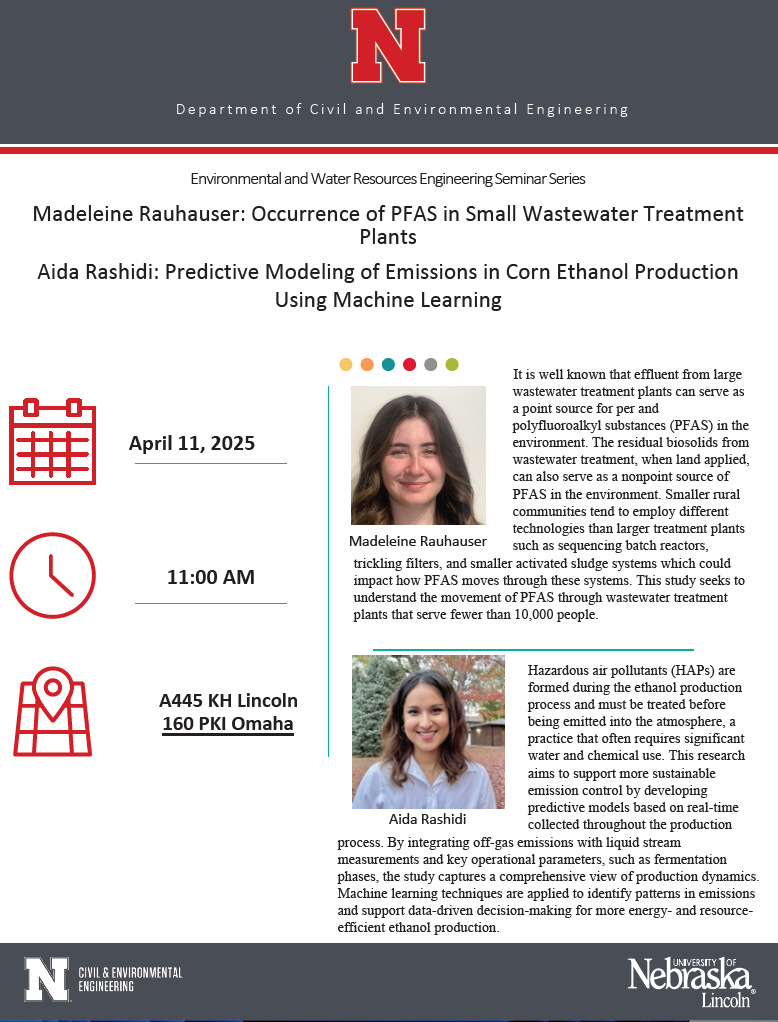
Speakers: Madeleine Rauhauser and Aida Rashidi
When: Friday, April 11th, 11:00AM
Where: KH A445 (Lincoln), PKI 160 (Omaha)
Madeleine Rauhauser: Occurrence of PFAS in Small Wastewater Treatment Plants
Abstract: It is well known that effluent from large wastewater treatment plants can serve as a point source for per and polyfluoroalkyl substances (PFAS) in the environment. The residual biosolids from wastewater treatment, when land applied, can also serve as a nonpoint source of PFAS in the environment. Smaller rural communities tend to employ different technologies than larger treatment plants such as sequencing batch reactors, trickling filters, and smaller activated sludge systems which could impact how PFAS moves through these systems. This study seeks to understand the movement of PFAS through wastewater treatment plants that serve fewer than 10,000 people.
Aida Rashidi: Predictive Modeling of Emissions in Corn Ethanol Production Using Machine Learning
Abstract: Hazardous air pollutants (HAPs) are formed during the ethanol production process and must be treated before being emitted into the atmosphere, a practice that often requires significant water and chemical use. This research aims to support more sustainable emission control by developing predictive models based on real-time collected throughout the production process. By integrating off-gas emissions with liquid stream and key operational parameters, such as fermentation phases, the study captures a comprehensive view of production dynamics. Machine learning techniques are applied to identify patterns in emissions and support data-driven decision-making for more energy- and resource efficient ethanol production.